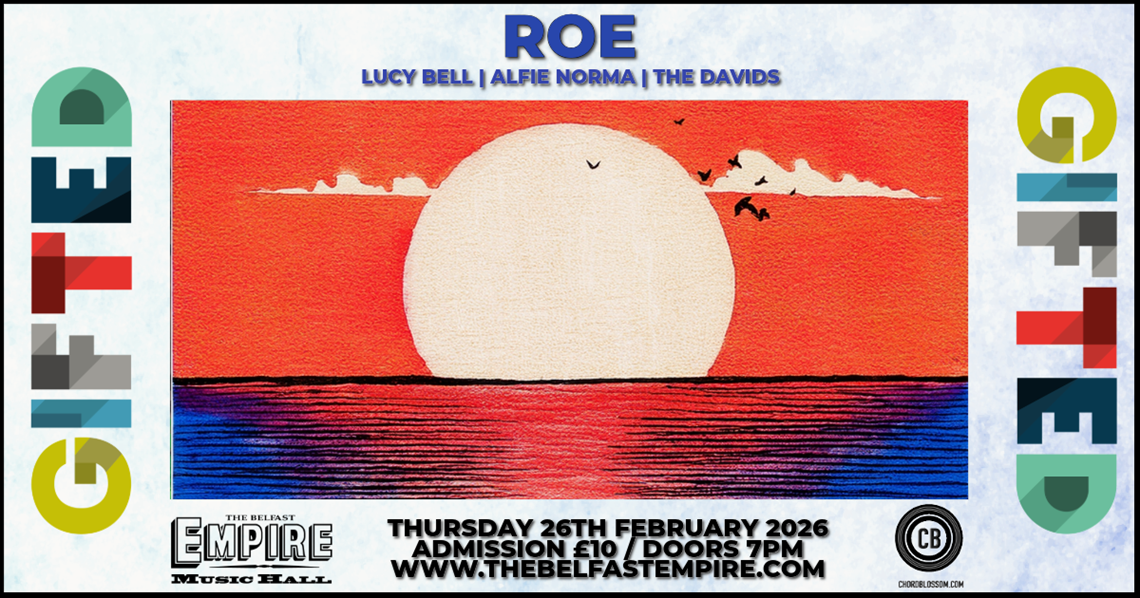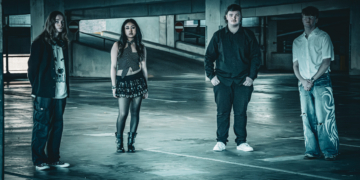The latest release from BLÁNID has her heart-stopping vocals right at the forefront once again. ‘Funeral Suit’ is her second collaboration with fellow Northern Irish songwriter Ciaran Lavery, a song written to reflect the frustrations of a patriarchal society. The pair’s previous co-write was the gorgeous ‘Bad Decisions’ in 2022, and ‘Funeral Suit’ is a worthy follow-up with its slow, waltzing beat cinematic production.
The London based artist has only released a handful of singles since her emergence in 2020 but each release has brought her to new audiences and built on her dramatic and emotive songwriting. Following her latest release, we asked BLÁNID to give us a look into her musical influences.
Sandy Denny – Who Knows Where The Time Goes – 1973 BBC live session with John Peel
Although this song has been covered by many people, for me nothing quite matches this version. The freedom of Denny’s voice and how the ornamentations just flow out of her – combined with the slightly detuned, jangly reverby guitar – makes this feel mournful and soaring all at the same time. I always listen to it when I feel I need to take a step back and just appreciate the enormity of life and love.
Kishi Bashi – I Am the Antichrist To You
From the first note of the bassy, reverby pizzicato at the beginning, to the opening lyrics of “Who are you? Who am I to you? I am the Antichrist to you”, I always feel that this song is the sonic equivalent of a gut punch. Using pizz almost exclusively until legato strings and percussion come in towards the end, it’s a beautiful display of the outpouring of grief. Special mention to the accompanying animated video dedicated to the memory of Dan Cho.
Foy Vance – Two Shades of Hope – live at Bangor Abbey
The first song of Foy Vance’s I ever heard was ‘Gabriel & the Vagabond’, off his 2007 album; from then on I’ve been a fan. I find myself often listening to live takes of Vance’s stuff – there’s a simplicity and extra rawness that comes with these versions. Stripped back down to just the guitar and his voice, this version aches with a quiet exhaustion, and tenderness.
Nick Cave – White Elephant
For me this is pure visceral poetry, and a suitably uncomfortable track to reflect the political landscape of 2020. I feel it’s one of those tracks where every time you listen you pick up another layer – either in the lyrical meaning, in Cave’s delivery, or in the production choices. The lumbering bass in this track is perfect, it feels as though there are genuinely large, menacing footsteps stomping ever closer. The tension builds slowly throughout to an almost unbearable level, with strings and siren like sounds soaring higher while Cave’s speech becomes more vicious and biblical. The gospel ending felt like an odd choice to me when I first listened to the track, but over the years I now interpret it as a deliberately uneasy, righteous resolution – like a shoddy plaster over what’s just come before.
Sufjan Stevens – 4th of July
Another gut punch of a song. I think what really makes this one are the ambient textures used throughout – they give a sense of a yawning, inescapable emptiness. What I love about this song is that it’s not afraid of simplicity, both in lyricism and in the structure of it – there’s no massive climax, no big lightbulb moment – just quiet devastation throughout.
Matt Corby – Brother – Balcony TV live Rooftop Session
This version was the first version of ‘Brother’ I heard, and for me it’s the best one – above every other live and produced version. Despite having watched it countless times, the emotion in the performance still absolutely floors me. It’s a masterclass in vocal control: he swoops from raw gravelly breaks to clear falsetto in a single phrase and in doing so bears his soul. One of my favourite live performances of all time.
Childish Gambino – Me and Your Mama
Probably one of the most versatile creatives out there at the minute – there is seemingly no end to this man’s talents. I love the way there are 3 completely different vibes in this song. You’re almost lulled into a false sense of security in the first section, with the softer female vocals and finger snaps until it blasts into that crunchy electric guitar entry. I love how he doesn’t hold back vocally and just screams in this section – it reminds me a little of Screamin’ Jay Hawkins’ ‘Alligator Wine’, which I adore. More screaming in songs needed!
Laura Marling – Master Hunter – Live on Jools Holland
I think half-singing/half-talking can sometimes sound corny in songs, especially in an acoustic setting, but Laura Marling executes it perfectly here. She treads a thin line between vulnerability and threat, delivering her lyrics with a quiet anger, and carelessness, sometimes spitting them out. I love the guitar part in this too – the dropped tuning lends an uneasy driving bass feel, and the repeated riff feeling like a warning throughout the song.
Elbow – Lippy Kids
This song is a masterpiece in capturing childhood nostalgia. The opening repeated piano note combined with the echoey background whistles takes me to a strange bittersweet place, recalling memories I’ve never lived: “Nobody knew me at home anymore” . The bass also plays such a deep & grounding role in this song; it’s used relatively sparsely throughout, so when it does come in, to me it feels like that peculiar heart-dropping sensation of when you yearn for the past.
Eric Whitacre (performed by The King’s Singers) – Lux Arumque
I’ve been a fan of The King’s Singers for a long time – I remember being moved at the incredible quality the first time I heard one of tenors sing. Though the members have changed over the years, they always aim to sound and blend like one voice. For Eric Whitacre’s work – which has every gorgeous dissonance under the sun – it works perfectly. I do prefer this version to large choir versions – I think the closeness in the range and the reduction of the number of voices makes it sound so warm, intimate and reverent.








